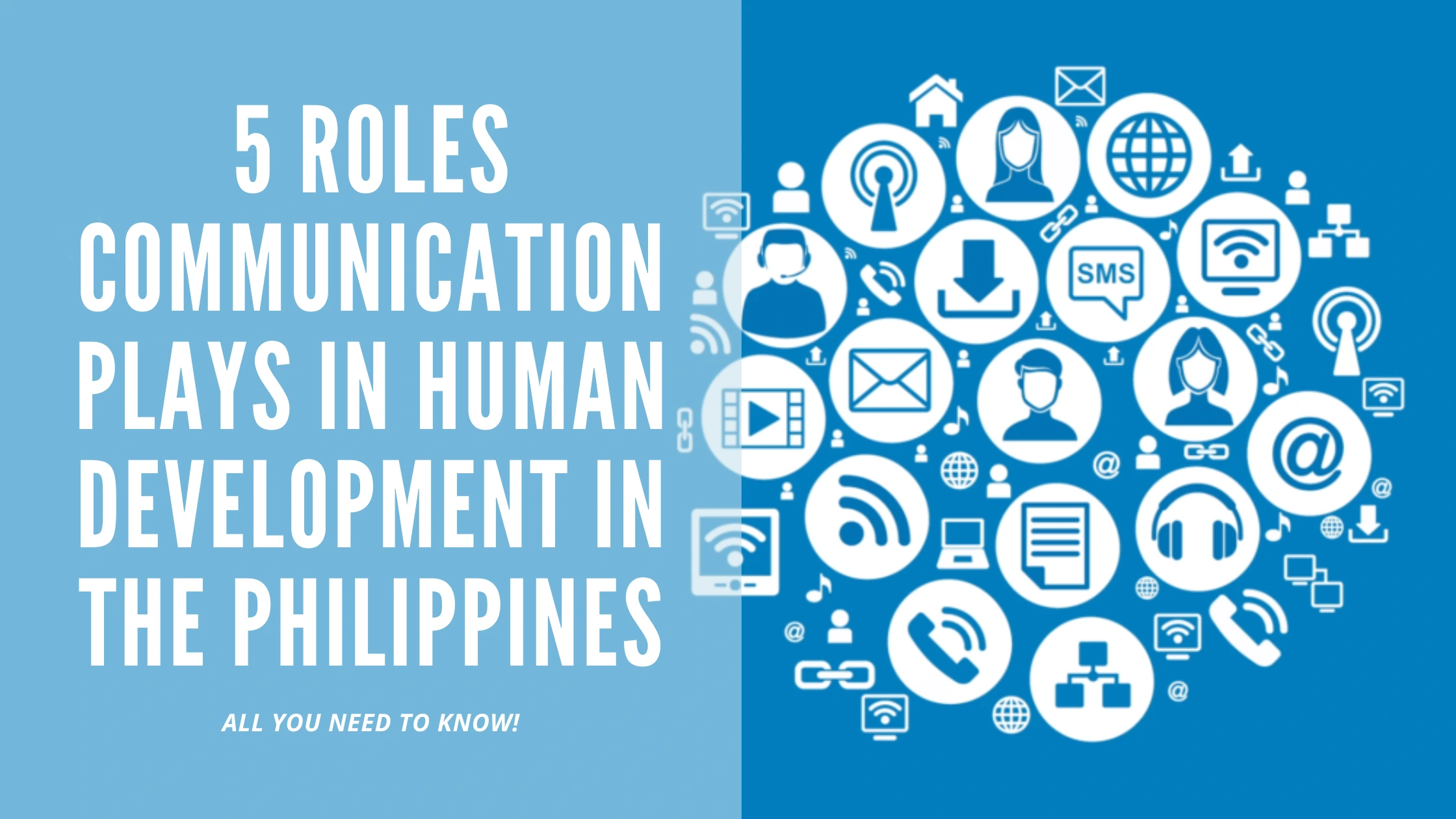5 Roles Communication Plays in Human Development in the Philippines

At the heart of human development is the idea of capabilities, chiefly what a population can do now and what they could be capable of in the future. To make a population more capable, they not only have to be free but also need access to capacity-building tools and infrastructure that permit higher levels of value-creation.
In the Philippines, human development potential is concentrated in highly urbanized centers, and predominantly among higher-income families. This is due to highly complex historical and geographic reasons that continue to affect the overall direction of the country’s human and economic development.
Fortunately, the Philippines’ development goals can be met if more Filipinos can equitably participate in the economy and make their voices heard, regardless of their social class or proximity to the country’s political centers. The key to expanding participation is communication. Communication helps planners and policymakers in formulating appropriate development programs while also helping beneficiaries convey their needs, ideas, and knowledge, affording them agency in designing their futures.
Indeed, communication and requisite technologies play a huge role in human development, especially in a middle-income country like the Philippines. Here’s how:
It Improves Access to Education and Livelihood Opportunities
In the digital age, more so than in decades past, communication plays an important role in improving access to education and livelihood opportunities, both of which are critical for human development. The transfer of information, after all, is central to the acquisition of knowledge. Today, this is facilitated by an entire array of technologies and by whole networks of information and communication infrastructure.
In the historically underdeveloped Philippine countryside, projects such as Aboitiz InfraCapital (AIC) and Partners Group’s Unity Digital Infrastructure common towers venture and AIC’s small cell sites are delivering affordable broadband connections to the remotest communities. These digital infrastructure assets have given previously underserved rural communities access to the same education, upskilling, and income opportunities that have been available to their peers in more developed urban areas. Further expansion of digital infrastructure to serve all Filipino communities will doubtlessly have a positive effect on the country’s capability to improve its human development potential.
It Helps Enhance the Quality of Healthcare
Population health is one of the dimensions assessed by the United Nations when determining a country’s Human Development Index (HDI). As such, a healthier population is generally indicative of a country with favorable human development metrics. Furthermore, healthier populations generally perform better in other areas of human development, as they are less encumbered by health issues and freer to spend time on self-improvement and value creation.
The effectiveness of healthcare delivery often hinges on how effectively leaders and medical professionals communicate. For instance, at the basic level, the way a doctor explains a condition to patients and caretakers can have a serious impact on trust, and healthcare outcomes. Similarly, at the macro level, the way public health threats and mitigation strategies are explained by policymakers can make a real difference in how well communities manage a healthcare crisis.
The value of communication as a core function of healthcare delivery was abundantly clear during the COVID-19 pandemic. The communications approaches of various leaders and healthcare workers played a key role in building public trust and mitigating the damage of the coronavirus, ensuring economic continuity. The same holds true in everyday healthcare practice, as health practitioners and policymakers use different communications channels available to them to inform and protect the Philippine public from diverse public health threats such as dengue, smoking, waterborne illnesses, and even illegal fireworks.
It Broadens People’s Awareness of Environmental Issues
Today, the Philippines faces several serious environmental threats, including climate change, pollution, and deforestation. These threats can impact human development in several ways. Groundwater and air pollution can cause a multitude of negative health effects in a population, directly affecting its HDI. Additionally, environmental damage serves to heighten economic inequality, as poorer individuals are less able to compensate for the negative effects on their health and productivity.
As most environmental problems are primarily manmade, communication is important for slowing down and reversing them and their effects on human development. In the Philippines, communicating environmental issues and individual accountability is a multisectoral effort that involves such bodies as the Environmental Management Bureau’s Environmental Education and Information Division, the Department of Education, LGUs, nonprofits, businesses, religious groups, and individual advocacies. The recent spread of digital infrastructure has made it possible for environmental communicators to reach a wider, more active audience, thus preventing the acceleration of environmental damage and the resulting loss of human potential.
It Empowers Minorities and the Poor
Achieving better human development in the Philippines continues to be hampered by economic and geographic inequality. Well-to-do Filipinos, particularly in highly developed urban areas are in a better position to develop their human potential compared to their rural, minority, and low-income peers. Unfortunately, less-privileged Filipinos also often find themselves with neither the education nor the means to facilitate the development of their skills and ability to generate economic value.
Better education and access to communications technology may narrow the country’s human development divide. A 2021 study published in the Journal of Asian Business and Economic Studies titled “Analysis of the impact of information communication technology on economic growth: empirical evidence from Asian countries” concludes that the spread of information communication technology (ICT) in Asian countries has a direct correlation with positive economic growth.
Notably, the study recommends that middle-income countries such as the Philippines invest in physical communications infrastructure as well as education to achieve the economic growth of high-income peers. Thus, by giving disadvantaged Filipinos a voice, we will be taking critical steps to better their lot and, consequently, boost the entire country’s human development potential.
It Helps Create the Right Conditions for Positive Changes in Governance
Communication goes beyond the ability to send and receive messages. It also requires people involved to be cognizant of the various implications of the messages that are exchanged. Without this discernment, populations can become vulnerable to low-quality information, eroding their capacity to meaningfully develop their human potential.
While the internet has been mostly a force for good, the worldwide rise in internet access has also resulted in massive amounts of information pollution in the form of disinformation, misinformation, propaganda, and hate speech. In the past decade, these threats have already resulted in significant erosion in public trust as well as political instability.
Educating Filipinos on how to identify information pollution is now vital in ensuring that the internet remains a positive force for change. It will not only help them vote for better leaders but also reduce apathy and encourage higher levels of political participation among the general population. Thus, empowering Filipinos to communicate well will do much more than help them economically. It will also set the stage for a more critical populace and a stronger, more capable democracy.
Final Words: Harnessing the Power of Modern Communication to Uplift Filipino Lives
Despite its intangibility, communication has been responsible for several important material benefits to human development, especially with regard to economic, health, and environment-related outcomes. A population’s ability to communicate at high levels is also a necessary component of good governance in democratic systems that, in turn, allows countries to further develop their human potential.
Knowing that it will remain a driver of development, communication as a force for good is worth innovating and investing in. The information age is due to transform the Philippines, and in many ways, it will be for the better.
